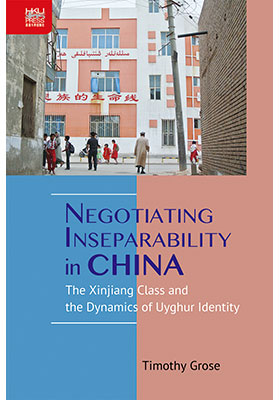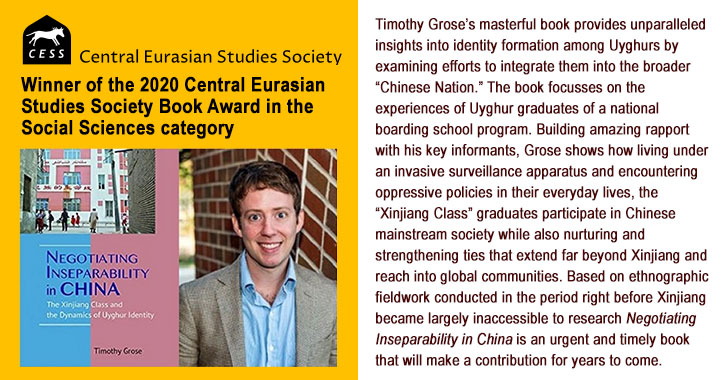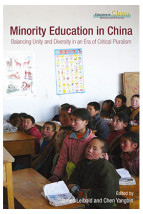Negotiating Inseparability in China
The Xinjiang Class and the Dynamics of Uyghur Identity
(在中國協商團結:新疆班與維吾爾族身份認同的變動)
ISBN : 978-988-8528-09-7
September 2019
160 pages, 6″ x 9″, 4 b&w illus.; 4 tables
- HK$320.00
Ebooks
Also Available on
This is the first book-length study of graduates from the Xinjiang Class, a program that funds senior high school–aged students from Xinjiang, mostly ethnic Uyghur, to attend a four-year course in predominately Han-populated cities in eastern and coastal China. Based on longitudinal field research, Negotiating Inseparability in China: The Xinjiang Class and the Dynamics of Uyghur Identity offers a detailed picture of the multilayered identities of contemporary Uyghur youth and an assessment of the effectiveness of this program in meeting its political goals. The experiences of Xinjiang Class graduates reveal how young, educated Uyghurs strategically and selectively embrace elements of the corporate Chinese Zhonghua minzu identity in order to stretch the boundaries of a nonstate-defined Uyghur identity. Timothy Grose also argues that the impositions of Chinese Mandarin and secular Chinese Communist Party (CCP) values over ethnic minority languages and religion, and physically displacing young Uyghurs from their neighborhood and cultural environment do not lead to ethnic assimilation, as the CCP apparently expects. Despite pressure from state authorities to urge Xinjiang Class graduates to return after their formal education, the majority of the graduates choose to remain in inner China or to use their Xinjiang Class education as a springboard to seek global citizenship based upon membership in a transnational Islamic community. For those who return to Xinjiang, contrary to the political goal of the program, few intend to serve the CCP, their country, or even their hometown. Instead, their homecomings are marred by disappointment, frustration, and discontent.
“This study demonstrates persuasively that the Chinese state’s attempts to produce—via delivery of a monolingual ‘Xinjiang Class’ education in inner China—a cohort of Chinese-speaking, Sinicized, secularized, and politically reliable Uyghurs, who will then return to Xinjiang to persuade other Uyghurs to support the Chinese Communist Party line, have had mixed results at best, and at worst constitute a failure.” —Joanne Smith Finley, Newcastle University
“This book provides a window into the agency of the Uyghur subjects of the Chinese state-building project. The author’s sustained fieldwork in Xinjiang and efforts to reconnect with Uyghur interlocutors multiple times offer an unprecedented glimpse into how members of the Xinjiang class attempt to negotiate between the state’s objective of producing an educated and loyal Uyghur cohort and their own political, social, and cultural identities and imperatives.” —Michael Clarke, Australian National University







